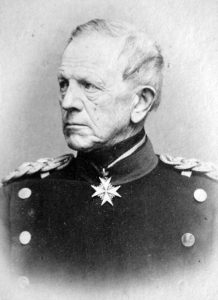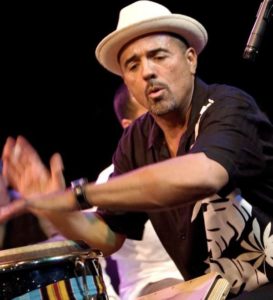A couple of weeks ago, I did a Facebook Live show with Julie Stoltz of The Great Courses. When we first discussed doing the show, Julie asked me if I’d give a lecture of some sort after which I would field some questions. I wasn’t terribly interested in doing a lecture; heaven knows, there’s enough of my blathering out there already, and besides, I wanted Julie to be able to take an active part in the show and to give the viewers an opportunity to comment at any time and not just at the end. So I came up with the idea of offering up a stack of recordings that would, as I put it at the time, be “guaranteed to raise our spirits, make us forget our woes, and render us susceptible to boogie fever.”

It was Field Marshal Helmuth Karl Bernhard Graf von Moltke (1800-1891), the Chief of Staff of the Prussian General Staff and then the Great [German] General Staff who famously said that “no battle plan ever survives first contact with the enemy.” On those same lines, I have myself discovered that “no interview plan survives the first question from the interviewer”, and as such, my conversation with Julie ranged all over the place. I did manage to put in a plug for some of my favorite flamenco albums, music of such beauty and rhythmic force as to be capable of raising the dead should we so choose to allow it do so. (I will absolutely, positively feature a couple of these albums here on Dr. Bob Prescribes in the not-distant future.)
Sadly, among the albums I did not have the opportunity to discuss is the one presented here and now, featuring John Santos (born November 1, 1955) and his band Machete (1986-2006).

In the spirit of full disclosure, I would tell you that I know John, that we have worked together, and that three years ago he actually gave me my copy of the disc we’re presently celebrating. None of this changes the pertinent fact that this is a hellaciously good CD, one that will make you dance and yell and clap your hands; the sort of music that simply makes us glad to be alive.
John Santos is a San Francisco Bay Area institution. He was born (and raised) in San Francisco’s sprawling Mission District into an extended family of Puerto Rican musicians. The Mission is to San Francisco what Astoria, Queens is to New York City; what Albany Park is to Chicago; what the Allapattah neighborhood is to Miami: the city’s most racially and ethnically diverse neighborhood. Growing up in the Mission, Santos was exposed to a dazzling variety of different sorts of music, all of which became part of his own voice: the Afro-Caribbean music of Puerto Rico, of course, but Cape Verdean music, Cuban music, jazz, salsa, and rock ‘n’ roll as well. Repeated research trips to Puerto Rico, Cuba, Brazil, and Colombia have helped to make him one of the world’s most respected experts on Afro-Caribbean music as well as Afro-Latin music: music that synthesizes African, European, and indigenous elements into various wholes a gazillion (or two) times greater than their parts.
Santos has been a cutting-edge player in the Bay Area’s Latin music scene for some forty years, not just as a master percussionist, composer and bandleader but as an educator, cultural activist, historian, and advocate. (As an advocate he has served on the Smithsonian Institution’s Latin Jazz Advisory Committee.) Over the years he has performed with such luminaries as Tito Puente, Max Roach, Eddie Palmieri, Carlos Santana, Cal Tjader, Bobby Hutcherson, and Dizzy Gillespie (1917-1993), who recognized Santos’ role as a synthesist when he called him:
“One of the best. He knows our music and everything that puts it together.”
